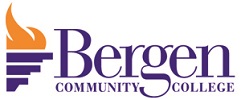Find your path to success with a diverse range of more than 120 degree, certificate, and continuing education programs.
It is the responsibility of each individual and family to determine how they will pay for the program and make arrangements with any third party who may be supporting any of the program costs.
Turning Point does NOT arrange for any tuition payments with any third party.
The Turning Point Program is a tuition-based program.
Costs do not include transportation, books, materials, or other course related expenses.
The program tuition cost per semester is the same for students who are out of county and state.
The Career Pathway Credentialing Course, fees and materials are included in this tuition.
Payment for the program tuition is due at the beginning of each semester.
Payment for the college elective is due within a week of registration.
Projected Turning Point program Expense for 2024-2025 Academic Year
- Turning Point program fee per semester (Fall/Spring): $3,250.00 (administrative and student support expenses)
- Undergraduate tuition per credit information can be found on the Bursar’s Tuition and Fees Web page
The program cost is subject to change.
Turning Program Participant Funding Sources
In addition to self-pay, some program participants seek other funding sources listed here.
Dual Enrollment
Dual enrollment occurs when high school students enroll and participate in college courses, while still being supported by their local school district.
The advantage to this type of enrollment is that a student can receive individualized support from their high school (under IDEA) while also having the opportunity to experience college.
In this circumstance, the school district may be responsible for transportation and educational coaching.
Also, the school system may cover the cost of college tuition, fees, and/or books.
Parents will need to discuss this option with their district independently to make these arrangements.
Division of Vocational Rehabilitation
Eligibility generally is based on the presence of a mental or physical disability that is an obstacle to employment.
Resources and services may be available to students who will need on the job training or support to find a job.
Families and Individuals need to discuss their vocational plan with a DVR counselor to determine if attending Turning Point aligns with their Individualized Plan for Employment (IPE).
New Jersey Department of Human Services
The New Jersey Division of Developmental Disabilities (DDD) provides public funding for services and supports that assist people with developmental disabilities.
These services are offered in the community by more than 250 New Jersey agencies and in seven residential developmental centers.
There is no entitlement for services funded by DDD. However, the division strives to make the most effective use of available funding so that it can serve as many people as possible.
DDD determines through an application process who is eligible* to receive services it funds.
Generally, to receive services, you must show that you have a severe, chronic physical and/or mental impairment that: manifests in the developmental years, before age 22; is life-long; and substantially limits you at least in three of the following life activities: self-care, learning, mobility, communication, self-direction, economic self sufficiency and the ability to live independently.
Department of Social Security Administration
Website: http://www.socialsecurity.gov
This program was established for the aged and people with disabilities and provides monthly stipend and NJ Medicaid.
Parents may apply on behalf of the children.
Individual Training Accounts (ITAs)
ITAs are funds set aside by the One-Stop Career Centers to help individuals pay for training that will lead to obtaining employment.
However, eligibility for an ITA is at the discretion of the local One-Stop.
Often, an individual must demonstrate a financial need and the likelihood of improved employability as a result of receiving further training.
For more information, visit the Department of Labor website.
Plans for Achieving Self-Support (PASS)
PASS Plans were developed by the Social Security Administration (SSA) as an incentive to encourage individuals who may be receiving Supplemental Security Income (SSI) or Supplemental Security Disability Income (SSDI) to enter the workforce.
In essence, this plan allows an individual to work and save money and not be penalized by a deduction from their SSI or SSDI check. However, there are restrictions on what the saved money may be used for.
To learn more about PASS Plans in general, or to find out what is covered under this type of plan, go to: http://www.passplan.org
Student Financial Aid (FAFSA)
Turning Point students are NOT currently eligible to apply for financial aid.
